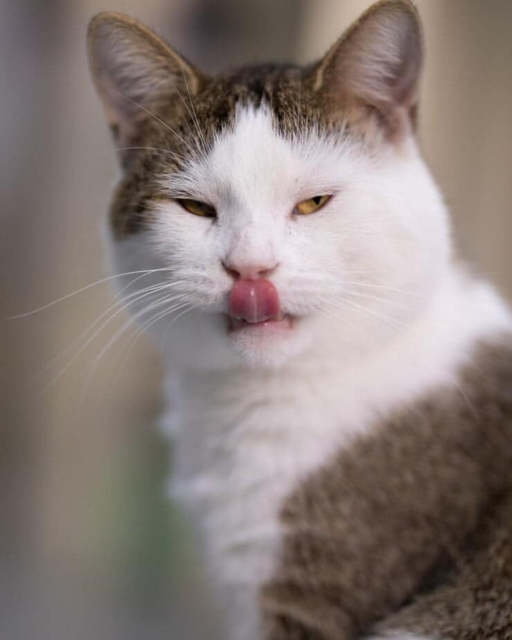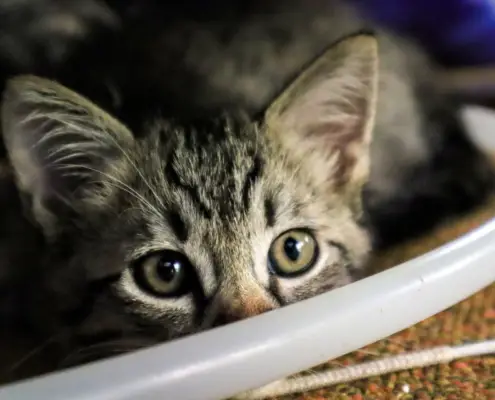
Nasal problems in cats can be a cause of concern for pet owners. It is essential to understand the underlying causes of these issues in order to provide the best care for your feline friend. Nasal problems can range from mild congestion to more severe conditions such as infections or allergies. Cats rely heavily on their sense of smell, so any issue that affects their nasal passages can significantly impact their overall well-being.
Common causes of nasal problems in cats
There are several common causes of nasal problems in cats. One of the primary culprits is viral or bacterial infections. Upper respiratory infections, such as feline herpesvirus or calicivirus, can lead to nasal congestion, sneezing, and discharge. Allergies can also trigger nasal problems in cats. Pollen, dust mites, or certain foods can cause an allergic reaction, resulting in nasal inflammation and discomfort.
In some cases, nasal problems in cats may be caused by structural abnormalities, such as a deviated septum or nasal polyps. These conditions can obstruct the nasal passages, making breathing difficult for your cat. Other potential causes include foreign objects lodged in the nasal cavity or tumors. Identifying the underlying cause of your cat’s nasal problems is crucial for effective treatment.
Symptoms of nasal problems in cats
Recognizing the symptoms of nasal problems in cats is essential for early detection and intervention. Some common signs include sneezing, nasal discharge, and congestion. You may notice your cat pawing at their nose or rubbing their face against furniture to alleviate discomfort. In more severe cases, cats may experience difficulty breathing, loss of appetite, or a decrease in energy levels.
If you observe blood in your cat’s nasal discharge or notice a foul odor, it could indicate a more serious condition. Additionally, any change in behavior or noticeable weight loss should not be ignored. Monitoring your cat’s symptoms closely will help you provide timely care and seek veterinary attention if necessary.
Diagnosing nasal problems in cats
Diagnosing nasal problems in cats requires a comprehensive evaluation by a veterinarian. Your vet will conduct a thorough physical examination, including an assessment of your cat’s nasal passages. They may also recommend additional diagnostic tests, such as blood work, X-rays, or nasal swabs. These tests can help identify the underlying cause of your cat’s nasal problems.
In some cases, your vet may refer you to a veterinary specialist, such as an internal medicine specialist or a veterinary ophthalmologist, for a more in-depth evaluation. Specialized imaging techniques like CT scans or rhinoscopy may be necessary to diagnose certain conditions accurately. Once the cause of your cat’s nasal problems is determined, appropriate treatment options can be discussed.
Treatment options for nasal problems in cats
The treatment options for nasal problems in cats depend on the underlying cause. In cases of bacterial or viral infections, your vet may prescribe antibiotics or antiviral medications to alleviate symptoms and help your cat recover. Allergies can be managed with antihistamines or corticosteroids to reduce inflammation and provide relief.
For structural abnormalities like nasal polyps, surgical intervention may be necessary to remove the obstruction. Tumors may require a combination of surgery, radiation therapy, or chemotherapy, depending on the type and stage of the tumor. Your veterinarian will guide you through the available treatment options and recommend the most suitable course of action for your cat.
Home remedies for nasal problems in cats
While home remedies cannot replace professional veterinary care, there are some measures you can take to help alleviate your cat’s nasal problems at home. Keeping your cat’s environment clean and free of allergens can minimize the risk of triggering nasal issues. Regularly cleaning your cat’s bedding, vacuuming carpets, and using air purifiers can help reduce dust and pollen in the air.
Humidifying the air can also provide relief for cats with nasal congestion. The moisture helps to soothe irritated nasal passages and make breathing more comfortable. Ensure your cat has access to fresh water at all times to stay hydrated, as hydration is essential for overall respiratory health.
Tips for helping your cat breathe easy
There are several tips you can follow to help your cat breathe easy and manage their nasal problems. Firstly, provide a stress-free environment for your cat, as stress can exacerbate respiratory issues. Ensure they have a quiet, comfortable space where they can rest undisturbed.
Regular veterinary check-ups are crucial to monitor your cat’s respiratory health and catch any potential issues early on. Additionally, maintaining a healthy diet and weight for your cat promotes overall well-being, including respiratory health.
Preventing nasal problems in cats
Prevention is key when it comes to nasal problems in cats. While some conditions may be difficult to prevent, there are steps you can take to minimize the risk. Vaccinating your cat against common respiratory viruses can help prevent infections. Regular flea and tick prevention can also reduce the likelihood of allergic reactions.
Maintaining good hygiene practices, such as regular grooming and cleaning your cat’s ears, can help prevent the accumulation of allergens and irritants. Lastly, avoiding exposure to secondhand smoke or other environmental pollutants can protect your cat’s respiratory system.
When to seek veterinary care
If you notice persistent or worsening symptoms in your cat, it is essential to seek veterinary care promptly. Nasal problems can indicate underlying health issues that require professional attention. Your vet can provide a comprehensive evaluation, diagnose the cause of your cat’s nasal problems, and recommend appropriate treatment options.
Conclusion
Nasal problems in cats can be a cause of discomfort and concern for pet owners. Understanding the common causes, symptoms, and treatment options for these issues is crucial for providing the best care for your feline friend. By working closely with your veterinarian and following their recommendations, you can help your cat breathe easy and maintain their overall respiratory health. Remember to monitor your cat’s symptoms closely and seek veterinary care if needed. With proper care and attention, you can ensure your cat’s nasal problems are effectively managed, allowing them to lead a happy, healthy life.
Schedule a veterinary check-up today to ensure your cat’s respiratory health is in optimal condition. Your veterinarian can provide personalized recommendations and address any concerns you may have.
If you enjoyed my article, I would appreciate you sharing it with your network.

Sima Ndlebe
Sima writes for CatBuzz. He is interested in Cats, Health and Fitness, and Entrepreneurship.
Published: 11 October 2023
Related Articles
Disclaimer
The content found on CatBuzz.org is presented on an "as is" basis and is intended for general consumer information and education purposes only. Any utilization of this information is voluntary and solely at the user's own risk.
None of the articles or content should be regarded as, or used in place of, veterinary medical advice, diagnosis, or treatment. The information provided on the website is purely for educational and informational intentions and should not be considered a substitute for professional guidance from a veterinarian or other qualified expert. The articles are designed to inform consumers about veterinary healthcare and medical matters that may impact their cat's daily life. It should be noted that this website and its services do not constitute the practice of any form of veterinary medical advice, diagnosis, or treatment. CatBuzz.org explicitly disclaims any liability for any direct or indirect damages or losses that may arise from the use of or reliance on the information contained within the content.
Consumers must consult a veterinarian, veterinary specialist, or another qualified veterinary healthcare provider when seeking advice regarding their cat's health or medical conditions. It is important not to ignore, avoid, or postpone seeking medical advice from a veterinarian or other qualified veterinary healthcare provider solely based on information obtained from this website. If you believe that your cat may be experiencing a medical issue or condition, it is imperative to promptly contact a qualified veterinary healthcare professional.




